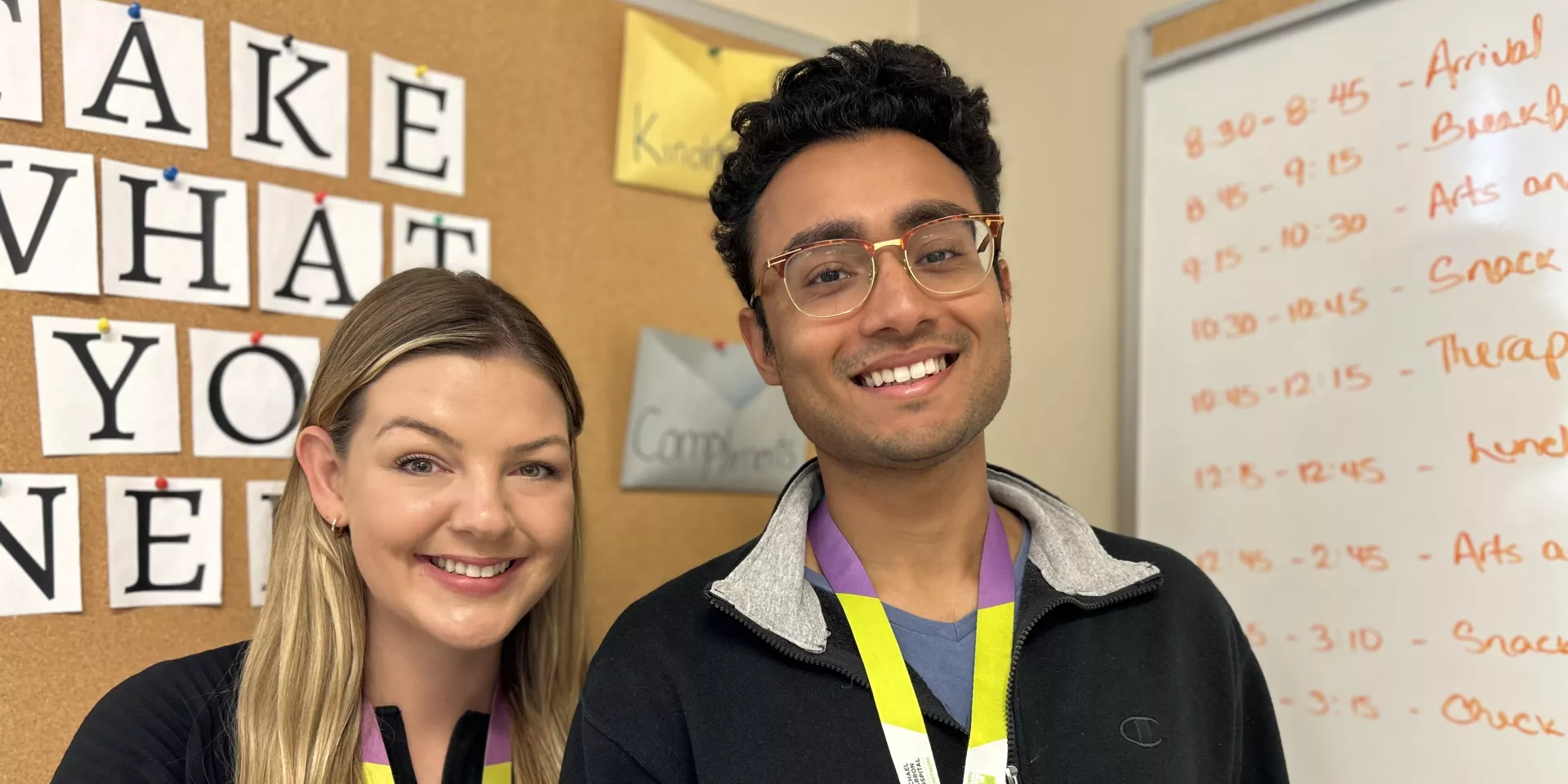“As young people returned to “normal” activities, going back to school in person for instance, there was a marked increase in anxiety. In addition to impacting mood and functioning, extreme anxiety can cause some youth to turn to substances and other harmful ways of coping,” says Sierra Keary, Registered Social Worker at Michael Garron Hospital.
As part of the Transitional Youth Program, Sierra and her team support people aged 16 to 29 as they face various life changes. This can involve working with youth as they move from child and youth to adult mental health services, from inpatient to outpatient services and, from hospital to community services. The program aims to empower young people to take control of their mental health, navigate the mental health system with greater confidence and more broadly, increase the likelihood of continued engagement and connection among youth.
“There are so many barriers to accessing mental health services, and too often young people can fall through cracks in the system,” Sierra says. “Particularly when youth have to navigate services on their own, they can end up getting disconnected from important supports.”
When it comes to accessing mental health services, there are usually long waitlists for affordable services. To mitigate this barrier, the Transitional Youth Program doesn’t have a waitlist. The team looks to connect with their referrals within 48 hours, because they know timely access leads to increased engagement from youth.
“In efforts to make that initial warm connection, we aim to meet youth face-to-face prior to their discharge from the Stavro Emergency Department or Slaight Family Child & Youth Mental Health Inpatient Unit,” Sierra says. “We see an increase in engagement from youth when they are able to have that initial connection and put a face to a name.”
Tom*, a second year college student, shares his experience with the Transitional Youth Program. “Because of the pandemic, I was facing difficult times and needed support. I looked through different websites for specialists. And, I’d email them but it was a struggle because many were online and I prefer in person. That’s when I started going to Michael Garron Hospital.”
Over the course of about three months, Tom received one-on-one counselling and service navigation support from Sierra.
“As we talked, I was shared what I was facing. Sierra provided some strategies and put me in touch with support services in the area,” he says.
“Often we see youth become quite anxious when it comes to involving new people in their care”, says Sierra. This can present as a barrier to accessing services. “One way we prevent this is by facilitating ‘warm handovers’ by personally introducing youth to the next service provider.”
Understanding that Tom was looking for long-term in-person support, Sierra personally introduced him to Riyan Visram, a Peer Support Worker at our hospital who co-leads a weekly peer support group and provides one-to-one peer support that draws from his own lived experience having to navigate the mental health and addiction systems.
Before long, Tom started meeting with Riyan on a regular basis and attending the peer support group.
“I got to meet other people who were dealing with similar issues. We also watched short videos, like TedX, and talked about our thoughts and ideas, and that helped me a lot,” says Tom. “In the process, I learned I wasn’t alone.”
“The peer support workers are nice,” he continues. “They treat you with respect, even if you are shy or anxious. Nothing is going to be shared and no one is going to be judged.”
“In our peer support group, everyone comes from a place of empathy and this helps build comfort and trust,” says Riyan. “We’re all on our own wellness journeys, and while we might not have the same experiences, we can still resonate with what they feel like.”
Together, the group has explored topics such as building connection with family and friends, resilience and gratitude.
“The opposite of isolation is connection,” says Riyan. “As much as the pandemic isolated all of us, we need to push back in equal measure.”
And it’s working. Recent data shows a 75% reduction in visits to our Stavro Emergency Department for clients of our program, as compared to six months prior to referral.
Our Transitional Youth Program is supported by Sun Life.
“We are committed to helping young Canadians take action on their mental health and access to the resources they need,” says Jacques Goulet, President of Sun Life Canada. “That is why we are thrilled to partner with Michael Garron Hospital on this program. They work to remove barriers that many Canadians face when trying to access the right mental health care.”
From January to September 2023 there have been 294 referrals to the Transitional Youth Program. Based on these numbers, another 100 referrals are expected by the end of the year.
Please help Michael Garron Hospital deliver great care for our community. Donate at mghf.ca/donate
*Name changed to protect privacy
